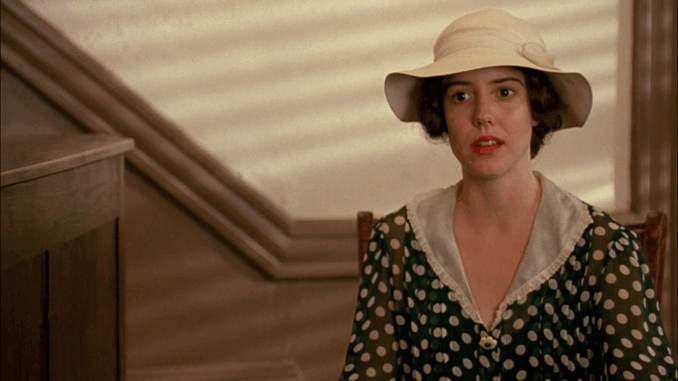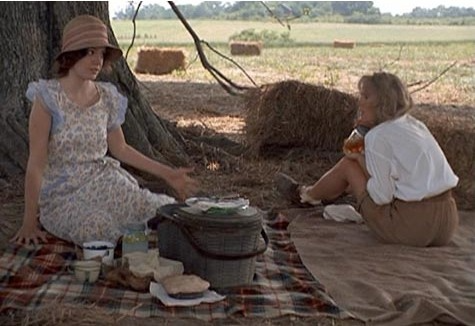
More than thirty years have passed since Fried Green Tomatoes first graced the silver screen, but in 2025, its story continues to captivate audiences — old and new. With a newly remastered version now streaming globally, the beloved 1991 film is not only making a comeback, it’s also being re-evaluated as a quiet, powerful voice in American cinema that spoke volumes — especially about women, friendship, identity, and resistance.
Long before “strong female leads” became a marketing tool, Fried Green Tomatoes gave us a story about two women who found strength in each other, and another who discovered strength in herself. It was about grief and joy, aging and rebirth, justice and freedom — all hidden in the folds of Southern charm, fried food, and Sunday stories.
A Quiet Revolution on Screen
Directed by Jon Avnet and based on the novel by Fannie Flagg, Fried Green Tomatoes follows the life of Evelyn Couch (Kathy Bates), a bored and insecure housewife who, through weekly visits to a nursing home, meets Ninny Threadgoode (Jessica Tandy), a spunky and captivating elderly woman with a treasure trove of stories. As Ninny recounts tales of Whistle Stop, Alabama — particularly the adventures of Idgie Threadgoode (Mary Stuart Masterson) and Ruth Jamison (Mary-Louise Parker) — Evelyn begins to reimagine her own life.
The movie’s non-linear storytelling, moving between 1920s Alabama and 1980s Georgia, reflects the emotional and social progress of its female characters. In the past, Idgie and Ruth run a cafe during a time when women were expected to stay in the home, all while raising a child and defying local prejudice. In the present, Evelyn breaks free from her own repression, standing up for herself, both physically and emotionally.
While many audiences in 1991 praised the film for its emotional resonance and picturesque Southern backdrop, others now see what the film subtly hinted at: a coded love story between Idgie and Ruth, a protest against racism and misogyny, and a plea for personal agency wrapped in comfort food and humor.
Streaming Revival Sparks New Dialogue

With its recent addition to Netflix, Fried Green Tomatoes is seeing a major resurgence in popularity. The streaming generation, raised on complex narratives and social commentary, is now reexamining the film through a modern lens.
Film critics and cultural commentators are drawing attention to how the movie’s themes—queer love, female autonomy, chosen family, and racial injustice—were groundbreaking for their time, even if carefully veiled to suit a mainstream 1990s audience.
Younger viewers are using platforms like TikTok and Instagram to share reactions, fan edits, and hot takes. Many are especially struck by the portrayal of Evelyn’s transformation — from a submissive, neglected woman to a confident, outspoken force of nature. Others are questioning why Idgie and Ruth’s relationship wasn’t made more explicit, using it as a case study for how queer stories have historically been coded rather than celebrated in Hollywood.
“Watching this today feels like uncovering a piece of history,” said one Twitter user. “It’s beautiful and brave, even if it couldn’t say everything out loud.”
A Franchise in the Works?
Hollywood insiders have hinted that Fried Green Tomatoes may soon expand beyond its original format. Sources suggest that Universal is exploring a reboot or spin-off series, either as a limited period drama or a modern-day reimagining. While unconfirmed, the project is said to focus on a new generation of women in Whistle Stop, dealing with contemporary challenges while honoring the legacy of Idgie and Ruth.
Screenwriters are reportedly considering a more overt treatment of LGBTQ+ themes and more nuanced depictions of race in the Deep South, offering the kind of storytelling freedom that the 1991 film couldn’t fully access.
If greenlit, the project could bring a fresh voice to the franchise, allowing old fans to reconnect and new viewers to discover the strength and softness at the heart of Whistle Stop.
Why It Still Matters
In a film landscape often dominated by spectacle and speed, Fried Green Tomatoes endures as a rare story about quiet revolution — the kind that happens in kitchens and porches, between conversations and casseroles. It’s about how stories save us, and how women have always saved each other, even when no one else was watching.
Its legacy is not one of grand speeches or sweeping heroism, but of small, human moments: a shared laugh, a bold decision, a plate of fried green tomatoes passed across the counter. And maybe that’s why the film still resonates — because it tells us that change is possible, not in some distant future, but here, in the everyday.
So as audiences gather once again around the table of Fried Green Tomatoes, one thing is clear: some stories don’t fade. They just keep cooking.
